
Breadcrumbs navigation
The best books to understand XXIst century international relations
This article was originally published by Shepherd, a book discovery website where authors and experts share their favourite books. BISA has a partnership with Shepherd to showcase our members' books and this time it's the turn of Matthieu Grandpierron. Look out for further articles by BISA members in the coming weeks. Try their bookshelf on international relations or politics to browse a wide range of recommended books.
Why am I passionate about this?
I have lived and worked in around 10 countries and studied international relations for more than 10 years. What fascinates me is how easy it is to have a misconceived view of the world. Today’s media largely plays a role in such misperception of others. The best cure against polarized, ready-to-think arguments made by others is simply to travel. The list I crafted for you will for sure make you travel. Travel through time and space; travel through history, philosophy, and civilisations. You won’t see the world the same way after reading these books.
I wrote...
Nostalgic Virility as a Cause of War
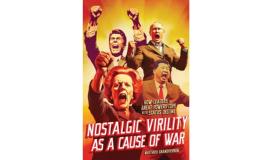
What is my book about?
Why do powerful nations sometimes choose war over diplomacy? This book explores a compelling idea: that some world leaders go to war not just for strategic advantage, but to reclaim a fading sense of national pride and masculine strength. This impulse is called nostalgic virility—a longing for a glorified past that shapes how leaders view power, history, and their nation’s standing in the world.
This fresh perspective not only sheds light on past conflicts, but also offers a new lens to understand today’s flashpoints—from Russia’s war in Ukraine to rising tensions in the South China Sea. With clarity and insight, this book challenges us to rethink how power, pride, and memory shape the path to war.
The books I picked & why
The New Atlantic Order
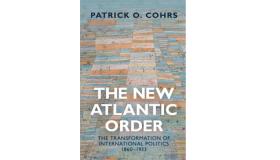
Why did I love this book?
The world today feels like it's spinning off its axis. Practices many believed were buried in the past are making a forceful return: wars of annexation, the redrawing of borders through violent conflict, and a resurgence of tariffs. At the same time, public discourse is becoming increasingly polarized, narrowing into black-and-white thinking.
While this may seem like something new, history tells a different story. In many ways, today’s events mirror the turbulence of the 19th century. I am convinced that major powers like the United States, Russia, and China—alongside influential regional players such as Iran and Turkey—are engaged in a deliberate effort to roll back the liberal legacy of the 19th century. If we want to understand the world in 2025, we have to understand the 19th century.
A History of Virility
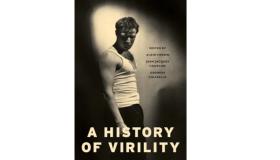
Why did I love this book?
This book explores how ideas of manhood have evolved, from ancient ideals of dominance to modern-day uncertainties. While the Enlightenment challenged traditional masculinity, the 19th century brought it roaring back through nationalism. In the 20th century, pacifist, feminist, and LGBTQ+ movements chipped away at these old codes, revealing a more fragile, unsettled sense of virility.
Now, we’re seeing a sharp pushback. Trump’s rise, Putin’s aggression in Ukraine, and the global surge in populism all draw on a nostalgic, aggressive vision of masculinity. This book helps make sense of the cultural roots behind today’s political shifts, showing that the struggle over manhood is also a geopolitical struggle over power.
On China
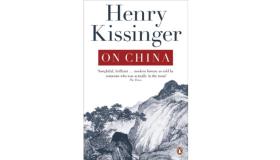
Why did I love this book?
To understand China today—its ambitions, its assertiveness, and its strategy under Xi Jinping—we need to understand its history and philosophy.
In this book, Henry Kissinger draws on decades of firsthand dialogues and anecdotes he had with Mao and Zhou Enlai, to explain how China views the world. As China blends historical memory with long-term strategic vision, Kissinger shows that China doesn’t just play by different rules—it sees the game differently. This book is essential for anyone seeking to understand China today.
Seapower States
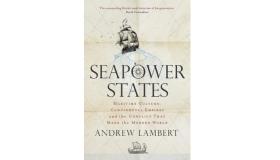
Why did I love this book?
In a world grappling with shifting power dynamics in which maritime trade is vital, naval dominance remains a defining force. This book examines how small but ambitious states like Athens, Venice, and Britain used their maritime identities to punch far above their weight. These "seapowers" thrived by embracing openness, innovation, and global reach—until they lost sight of what made them exceptional and collapsed.
Understanding the difference between a naval power and a seapower is crucial today, especially to anyone who wants to understand China-U.S. relations since the return of Donald Trump. The U.S. and China wield massive fleets, but their strategies reflect continental mindsets, not the dynamics of historical seapowers. This book is a travel through history to better understand today’s world.
The Once and Future World Order
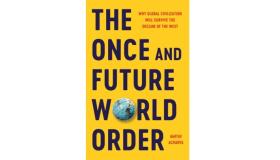
Why did I love this book?
In 2025, with rising tensions between the U.S. and China, growing political divides in the West, and a world order under strain, many fear global chaos is imminent. Drawing from 5,000 years of global history, this book shows that a world order didn’t begin with the West—and won’t end with it.
From ancient India to Islamic caliphates and Chinese dynasties, the book reveals how global norms, cooperation, and coexistence emerged independently across civilizations and cultures. As Western influence wanes, we’re not heading for collapse but transformation, and we should not be fearing it.
Photo by Karolina Grabowska on Unsplash


